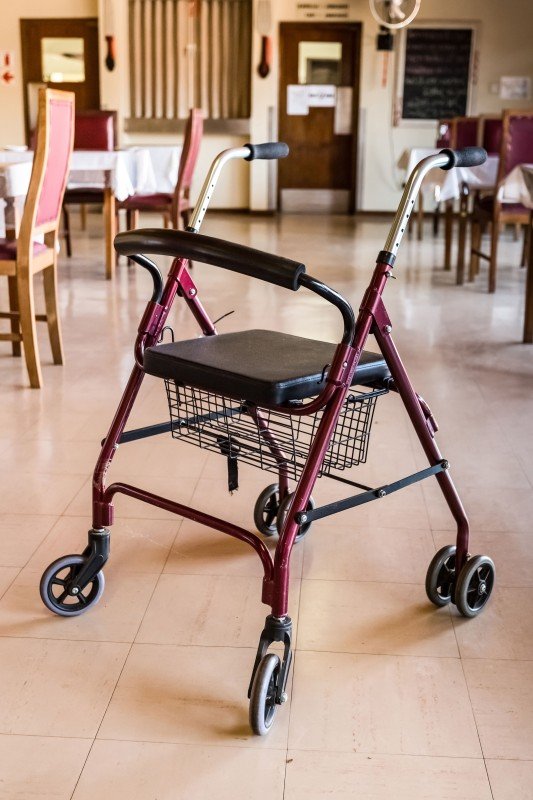Mobility Scooters in the UK: A Comprehensive Guide
In the United Kingdom, mobility scooters are ending up being an increasingly popular ways of transportation for individuals with mobility issues, offering them with the flexibility to navigate their neighborhoods individually. These motorized vehicles are developed to assist those who have difficulty strolling or using a manual wheelchair, offering a practical and comfy service for everyday travel. This short article digs into the world of mobility scooters in the UK, exploring their benefits, legal requirements, and how to pick the right one.

Introduction to Mobility Scooters
A mobility scooter is a battery-powered car that usually has 3 or 4 wheels, a seat for the chauffeur, and handlebars for guiding. They are created to be simple to use and keep, making them ideal for older grownups and people with impairments who wish to maintain their self-reliance. Mobility scooters can be found in various sizes and models, each catering to various requirements and preferences.
Advantages of Mobility Scooters
- Increased Independence: Mobility scooters allow users to take a trip longer distances without the physical strain related to walking or utilizing a manual wheelchair. This independence can significantly boost their lifestyle.
- Economical: Compared to other motorized lorries, mobility scooters are reasonably affordable. They also need very little upkeep, which can conserve users a great deal of cash in the long run.
- Relieve of Use: Most mobility scooters are developed to be user-friendly, with user-friendly controls and comfy seating. They are frequently lightweight and can be quickly taken apart for transport.
- Enhanced Social Interaction: By allowing users to venture out more often, mobility scooters can help in reducing feelings of seclusion and loneliness, cultivating social connections and neighborhood participation.
- Boosted Safety: Mobility scooters are geared up with functions such as headlights, brake lights, and horns, making them safer for usage on roadways and in public spaces.
Types of Mobility Scooters
When picking a mobility scooter uk - visit this web-site, scooter, it's essential to consider the type that best fits your requirements. Here are the main types readily available in the UK:
Class 2 Mobility Scooters:
- Speed: Limited to 4 miles per hour (6.4 km/h)
- Usage: Suitable for pavements and pedestrian locations
- Features: Compact and lightweight, collapsible for easy transportation
Class 3 Mobility Scooters:
- Speed: Can rise to 8 mph (12.9 km/h)
- Usage: Suitable for both pavements and roads, supplied they are signed up and insured
- Functions: Sturdier build, typically with advanced features like suspension and larger batteries
Strong Mobility Scooters:
- Capacity: Designed to support users weighing as much as 400 pounds (181 kg)
- Usage: Ideal for those who need a robust and durable scooter
- Functions: Reinforced frame, wider seat, and enhanced stability
Off-Road Mobility Scooters:
- Terrain: Built to handle rough and unequal surface areas
- Usage: Suitable for users who delight in outdoor activities like treking or fishing
- Features: All-terrain tires, high ground clearance, and effective motors
Legal Requirements for Mobility Scooters in the UK
Utilizing a mobility scooter in the UK features particular legal responsibilities. Here are the key points to consider:
- Registration and Insurance:
- Class 2 Scooters: No registration or insurance coverage needed
- Class 3 Scooters: Must be signed up with the DVLA, insured, and show a valid MOT certificate if used on roads
- Chauffeur Requirements:
- Age: Users must be at least 14 years old
- Health: No particular health conditions are needed, however users ought to have the ability to control the scooter securely
- Speed Limits:
- Class 2 Scooters: 4 miles per hour (6.4 km/h) on pavements
- Class 3 Scooters: 8 mph (12.9 km/h) on roadways, 4 miles per hour on pavements
- Security Equipment:
- Lights: All scooters utilized on roadways must have front and rear lights, indications, and a horn
- Reflectors: Required for use on roadways, particularly during low presence conditions
- Tax and Parking:
- Tax: Class 3 scooters are exempt from car tax
- Parking: Users can park in designated disabled parking spaces with a legitimate Blue Badge
How to Choose the Right Mobility Scooter
Selecting the ideal mobility scooter includes considering a number of factors:
Mobility Needs:
- Range: How far do you require to take a trip?
- Terrain: Will you be using the scooter on pavements, roads, or off-road?
- Weight Capacity: What is the maximum weight the scooter requires to support?
Budget:
- Initial Cost: Mobility scooters can vary from a couple of hundred to several thousand pounds
- Continuous Costs: Consider the cost of batteries, maintenance, and insurance
Features:
- Comfort: Look for a scooter with a comfortable seat and adjustable controls
- Storage: Some scooters offer extra storage for shopping bags or individual products
- Mobility: If you need to carry the scooter, select a model that is light-weight and foldable
Credibility and Support:
- Brand: Research trusted brands understood for their quality and reliability
- Guarantee: Check the guarantee duration and what it covers
- Client Support: Ensure the manufacturer or retailer provides great client assistance and service
Frequently Asked Questions About Mobility Scooters in the UK
Do I need a license to drive a mobility scooter?

- No, you do not require a driving license to operate a mobility scooter in the UK. Nevertheless, Class 3 scooters must be registered with the DVLA and insured if utilized on roads.
Can I use a mobility scooter on the pavement?
- Yes, both Class 2 and Class 3 scooters are enabled on pavements, but Class 3 scooters are limited to 4 miles per hour.
Are there any limitations on where I can use a mobility scooter?
- Class 2 scooters are restricted to pavements and pedestrian locations. Class 3 scooters can be used on roadways, however they must meet particular legal requirements.
How do I maintain my mobility scooter?
- Routine maintenance consists of checking battery levels, tire pressure, and brake performance. It's also essential to clean up the scooter frequently and save it in a dry location.
Can I get a mobility scooter through the NHS?
- The NHS provides mobility scooters through the Disabled Living Allowance (DLA) or Personal Independence Payment (PIP). You can likewise acquire or lease a scooter from a private seller.
Is a mobility scooter tax-deductible?
- In many cases, the expense of a mobility scooter can be declared as a medical cost. Seek advice from a financial consultant for particular guidance.
Tips for Using a Mobility Scooter Safely
- Use Appropriate Clothing:
- Wear comfortable and weather-appropriate clothes. Consider using a high-visibility jacket when using the scooter on roads.
- Preserve the Scooter:
- Regularly check the battery, tires, and brakes to guarantee the scooter is in excellent working condition.
- Follow Traffic Rules:
- Obey traffic indications and signals, and utilize designated pedestrian and cycle courses when possible.
- Usage Safety Equipment:
- Always use the headlights, brake lights, and horn, particularly during low visibility conditions.
- Bear in mind Others:
- Be courteous to pedestrians and other road users. Decrease when approaching congested locations.
Mobility scooters are a valuable tool for individuals in the UK who deal with mobility challenges. They provide a series of benefits, from increased independence to boosted security, making them a popular option for older adults and individuals with disabilities. By comprehending the different kinds of scooters, legal requirements, and how to select the best one, users can take pleasure in the liberty and benefit these cars provide. Whether for everyday errands or pastime, a mobility scooter can considerably improve the lifestyle for many individuals.
Additional Resources
- DVLA Website: For information on signing up and insuring a Class 3 mobility scooter
- Age UK: Offers guidance and assistance for older grownups considering a mobility scooter
- Disability Rights UK: Provides guidance on accessing mobility scooters through financial help programs
By making the effort to research and choose the best mobility scooter, users can take pleasure in higher self-reliance and a more active lifestyle.




